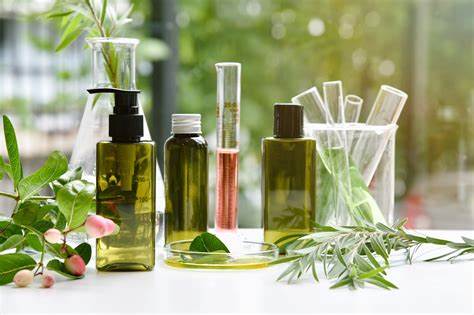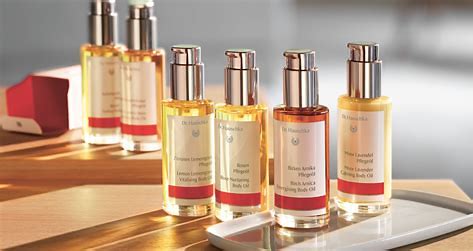Discover the truth behind natural skincare products. Are they as effective as they claim to be? Let us delve into the science and research to determine whether natural skincare products truly work wonders for your skin.
Table of Contents
Fascinating statistics reveal the undeniable surge in popularity of natural skincare. According to a recent market research report, the global natural and organic skincare market is projected to reach a staggering $25.11 billion by 2025, reflecting a compound annual growth rate (CAGR) of 9.4%. This exponential growth signifies a significant shift in consumer preferences towards cleaner and greener beauty options.
Furthermore, a survey conducted by a renowned beauty magazine found that 72% of respondents believed that natural skincare products were more effective in improving skin health compared to synthetic alternatives.

The perception that natural equals better have firmly taken root in the minds of beauty enthusiasts around the globe. However, as we navigate the world of natural skincare, it is crucial to separate fact from fiction.
Understanding Natural Skincare Products:
Are these products truly superior, or is it all just clever marketing? To find the answers, we must examine the scientific evidence and scrutinize the claims made by both proponents and sceptics of natural skincare.
Join us on this journey as we unravel the truth behind the efficacy of natural skincare products and dispel the myths that have permeated the beauty industry.
Popular natural skin care products:
Recent years, the popularity of natural skincare products has skyrocketed, with claims of providing superior benefits and being safer for the skin. From organic moisturizers to botanical-infused serums, the market is flooded with a wide array of options. But do these products really deliver on their promises, or are they simply riding the wave of consumer demand?
To answer this question, it’s crucial to understand what natural skincare products entail. These products are typically formulated using plant-derived ingredients, avoiding synthetic additives such as parabens, sulphates, and artificial fragrances. The allure lies in the perception that these formulations are gentler and more compatible with our skin’s natural balance.
The Safety Concern:
One of the main reasons individuals turn to natural skincare products is the belief that they are safer and less likely to cause adverse reactions. While it is true that some people may have sensitivities to certain synthetic ingredients, it’s important to note that not all synthetic compounds are harmful.
Rigorous testing and regulation in the cosmetics industry ensure the safety of most synthetic ingredients used in skincare products.The efficacy of skincare products, whether natural or synthetic, is primarily determined by the active ingredients they contain. Natural skincare products often incorporate plant extracts, essential oils, and herbal remedies, which can offer various benefits to the skin.
For example, tea tree oil has antimicrobial properties that can help combat acne, while aloe vera has soothing and hydrating properties.
Rosehip Seed Oil:
Rosehip seed oil has gained immense popularity in the realm of natural beauty products. Extracted from the seeds of wild rose bushes, this oil is rich in essential fatty acids, vitamins A and C, and antioxidants. Renowned for its ability to nourish and rejuvenate the skin, rosehip seed oil is hailed for its potential to reduce the appearance of scars, fine lines, and hyperpigmentation. Its lightweight texture makes it suitable for all skin types, and it’s often used as a moisturizer, facial oil, or added to skincare formulations for its impressive benefits.

Tea Tree Oil:
Tea tree oil, derived from the leaves of the Melaleuca alternifolia tree native to Australia, is a beloved natural beauty product with remarkable antimicrobial properties. This essential oil has been used for centuries for its ability to combat acne and blemishes. Its potent antibacterial and anti-inflammatory properties make it a popular choice for spot treatments, facial cleansers, and even natural deodorants. Additionally, tea tree oil is known for its soothing effects on the scalp and is often included in hair care products to address dandruff and itchiness.
Aloe Vera Gel:
Aloe vera gel, derived from the succulent plant’s fleshy leaves, has long been revered for its healing and moisturizing properties. This gel contains a plethora of vitamins, minerals, and antioxidants that can promote skin hydration, reduce inflammation, and aid in the healing of wounds and burns. Its lightweight and soothing nature make it suitable for all skin types, including sensitive skin. Aloe vera gel is commonly used as a natural moisturizer, as an ingredient in soothing masks and serums, and is even found in sunscreens due to its cooling and calming effects on sun-exposed skin.
These three natural beauty products have gained popularity for their potent skincare benefits and the use of ingredients sourced directly from nature. Incorporating these products into your skincare routine can provide you with an array of natural, nourishing, and effective solutions for healthier, glowing skin.
Exploring the Top 10 Natural Skin care Product Brands:
While it’s difficult to definitively rank the “top 10” best natural product brands in the world, as preferences and opinions may vary, here are ten notable natural product brands that have garnered recognition and acclaim for their commitment to using natural and organic ingredients:

Dr. Hauschka: Known for their holistic approach to skincare, Dr. Hauschka offers a range of natural and organic products made with ethically sourced botanical ingredients.
Tata Harper: Tata Harper is renowned for their luxury skincare line, which features 100% natural and non-toxic formulations made from their own farm-grown botanicals.
Weleda: With a long-standing reputation for producing natural and biodynamic skincare, Weleda offers a wide range of products made from plant-based ingredients.
RMS Beauty: RMS Beauty focuses on clean and natural cosmetics, creating products with organic ingredients that enhance and nourish the skin.
Neal’s Yard Remedies: This British brand is committed to using natural and organic ingredients in their skincare, body care, and aromatherapy products, promoting overall well-being.
Juice Beauty: Known for their organic skincare and makeup, Juice Beauty utilizes fruit and botanical juices as the base of their formulations to provide effective and natural solutions.
Burt’s Bees: Burt’s Bees is a popular brand that offers natural personal care products, including skincare, lip care, and baby care, with an emphasis on sustainability.
Herbivore Botanicals: Herbivore Botanicals is known for their minimalist approach to skincare, creating products using natural ingredients and focusing on simplicity and effectiveness.
Alba Botanica: Alba Botanica offers a diverse range of natural personal care products, including skincare, hair care, and body care, with a commitment to using plant-based ingredients.
Avalon Organics: Avalon Organics specializes in organic skincare and hair care products, incorporating botanicals and essential oils into their formulations.
These brands have gained recognition for their commitment to natural and organic ingredients, sustainable practices, and producing products that deliver effective results while minimizing environmental impact. However, it’s important to note that individual preferences and skin types may vary, so it’s always recommended to research and choose products that align with your specific needs and values.
However, it is essential to recognize that natural ingredients are not always inherently superior. Scientific studies have demonstrated that both natural and synthetic ingredients can effectively address specific skin concerns. It’s the concentration, formulation, and compatibility with an individual’s skin type that truly determine the effectiveness of a skincare product.
Are natural skincare products effective?
Yes, natural skincare products can be effective. They often utilize plant-based ingredients with beneficial properties for the skin. However, individual results may vary, and efficacy depends on factors such as formulation, concentration of active ingredients, and compatibility with specific skin types and concerns.
Moreover, the term “natural” itself can be misleading. Many natural skincare products still undergo processing and refinement, which can alter their original composition. Additionally, just because an ingredient is natural doesn’t mean it is suitable for everyone. Certain natural substances may cause allergies or skin irritations in some individuals.
When it comes to choosing skincare products, it’s advisable to focus on individual skin needs rather than getting caught up in the natural vs. synthetic debate. Understanding your skin type, specific concerns, and seeking professional advice can help you make informed decisions.
In conclusion, natural skincare products can indeed work wonders for the skin, but so can their synthetic counterparts. The key lies in understanding the active ingredients, their concentrations, and how they interact with your unique skin. Rather than blindly following trends or labels, it’s important to prioritize finding products that are compatible with your skin’s needs. Remember, true efficacy comes from a combination of science, research, and personal suitability.
Is natural skincare better than chemical?
The effectiveness of skincare products is not solely determined by whether they are natural or chemical. Both natural and chemical ingredients can be effective depending on their formulation, concentration, and compatibility with individual skin types. It’s important to consider specific needs and preferences when choosing skincare products.
Should I use natural products on my face?
Using natural products on your face is a personal choice. Natural products can offer benefits such as using plant-based ingredients and avoiding certain synthetic additives. However, it’s important to consider your skin type, specific concerns, and compatibility with the product to make an informed decision that suits your individual needs.